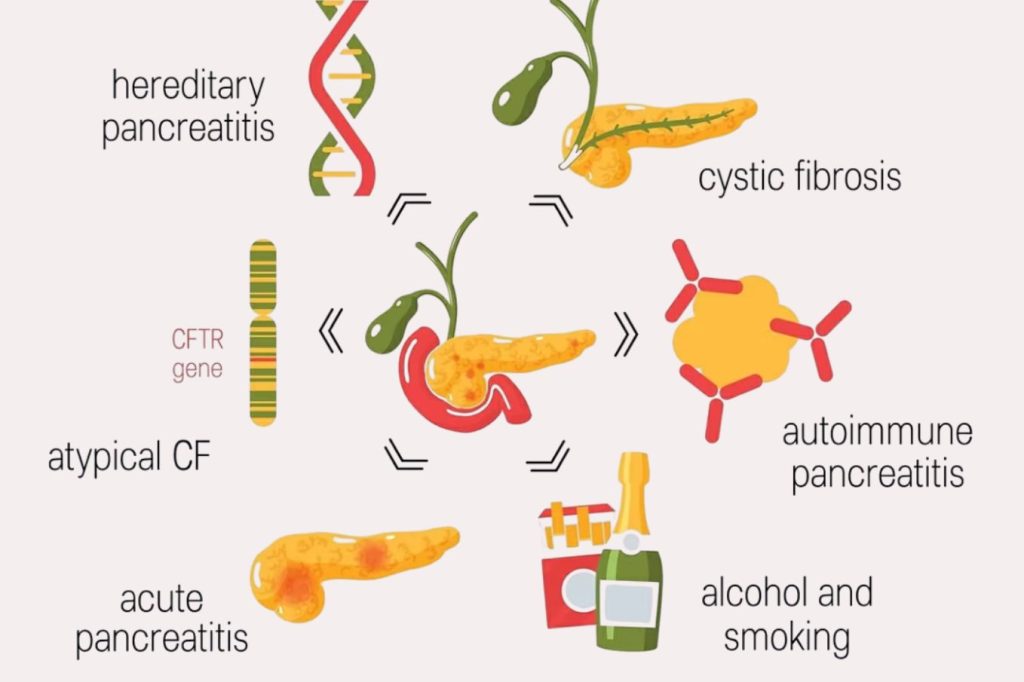Your Cart
Your Cart is currently empty.
Pancreatitis is the inflammation of the pancreas, which can lead to pain, swelling, and a variety of digestive issues. The pancreas, located in the upper abdomen between the stomach and the spine, plays a crucial role in digestion and blood sugar regulation. It produces digestive enzymes that help break down food in the intestines and hormones like insulin that regulate blood glucose levels.

Healthy

Pancreatitis




1. Opioid Dependency:
Chronic pancreatitis often requires long-term pain management, typically with opioids, which can lead to dependency and other side effects.
2. Enzyme Replacement Therapy:
While enzyme supplements help with digestion, they may not fully alleviate symptoms, and some patients still experience malabsorption or difficulty with nutrient absorption.
3. No Cure for Chronic Pancreatitis:
Chronic pancreatitis is a progressive disease with no cure. Current treatments only focus on managing symptoms of chronic pancreatitis.
4. Surgical Interventions:
Surgical procedures like pancreatic duct drainage or partial resection can carry risks including infections, complications, or worsened pancreatic function.
Phone number:
+91 6379926961
Location:
429A, V.V.C Layout, Pulliyakulam Road, Coimbatore – 641018.
Email:
support@namashivayah.com
